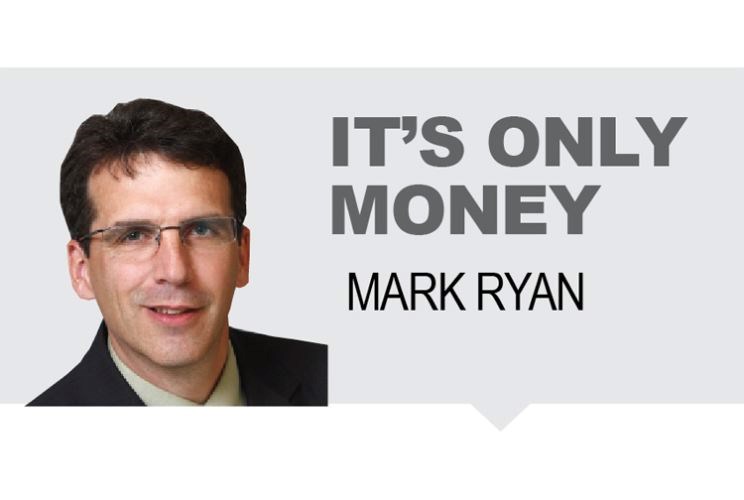Cutline:
AP file photo
Demonstrators protest during a march in Berlin, Germany, in 2016.
It's as benign as nomenclature - or as lethal. It's what action thrillers and real-life war crimes have in common.
Create an enemy or enhance an actual one by fertilizing his sins with the potent tonic of storytelling. Then infantilize the victim (or victim group) until the contrast between the oppressed and the oppressor is so acute that it awakens (manipulatively) the powerful human instinct of compassion. Then the guttural outcome is violence.
Who didn't fist-pump when (insert Clint Eastwood character here) kills the bad guy in a flurry of blows to the head? Repeat, bring to a simmer and wait for the revolution to rise.
As much as diehard communists decry corporate marketers, Marx is the father of doublespeak.
I come from a long line of working class families. As a young worker, I've been variously a member of the IWA, the BCGEU and CUPE. These unions are filled with salty, honest working folks, many of whom I'd welcome to my backyard barbeque. And since he is so willing to listen, I'm patient with my dear, left-leaning friend. He, with his three humanities degrees, is baffled by basic financial terminology. Conversely, I'm his grasshopper when he describes the goings on in his Lower Mainland school district where he is a pragmatic, but good-hearted administrator.
But I cringe when I witness the mob-like moralistic diatribes against free markets. Financial terms are synonyms for tyranny, when in reality they are tools for prosperity.
Big business: they suggest that it's the size that offends, not the concept. But why then do they have such an inherent trust in big unions or big government? Is there some sort of human purification system that filters out greed, abuse of power, selfishness, laziness, dishonesty, cronyism, favouritism, racism, sexism or other forms of corruption in the government or union setting? History doesn't support that idea.
Corporate profit: would you prefer corporate losses? Don't be so Canadian. Buy shares.
The one per cent: anyone in such an exclusive club must have cheated to get there. Give me some of your stuff. But on a global basis, according to Investopedia, earning more than $45,000 Canadian is in the top one per cent of earners worldwide. I guess we all cheated.
Capitalism: The catch-all critique. The presupposed descriptor of pure inhumanity, defining the heartless machine-gods of commerce. On the way home from the protest, ride-sharing back to their condo, (carefully-chosen for its proximity to Walmart), in their next free minute, the protester pulls out his $1,200 smart phone and mumbles: "I hope my mutual funds are up today."
Speculation: A few tech savvy youth might think their generation invented crowd-funding. Ooh, such disruptors! Nope. If you take venture capital financing, or even an initial public offering, and subtract the professional industry training, remove the regulatory oversight, and a wash away the well-developed legal framework, you have something like crowd-funding. Both involve speculation, which is a crucial element in any free economy, and a mystery to those who have not seriously swam in it.Speculation is vital to a healthy market. It is Keynes's "animal spirits." To speculate is to hire new employees, to rebuild your sawmill, to buy a new logging truck or even a house.
Right brainers tend to lean left and are often opinion leaders. And all of them, the professors, union leaders and journalists are by nature, superior at story-telling - the life blood of culture. It's difficult to ignore their compelling themes after a few decades. On the other hand, finance nerds usually write like tongue-tied zombies and successful entrepreneurs are often reclusive, so their stories are garbled by their natures.
The entrepreneur's reward for taking risk can be staggering. When this unbounded success is juxtaposed with these stories, it seems to nail the point home. Once they rise to the top, most business people retain their humanity, but some (not all of whom are named Donald) become vicious and cling to power. This pushes the point further.
Fictitious whoppers incessantly flow from Marxist nations, where administrations have no counter balance other than free-enterprise nations. But while the Marxists outlaw dissent, we embrace it as healthy political tension. As a result, a steady stream of criticism fills our minds at home, while mostly homogenous praise greets the left.
Somehow, despite their stellar track records of fiscal ineptitude, we get the warm-fuzzies when the government takes over a segment of the economy. Those nice people are working for us. Like an over-exuberant hockey referee, governments - on the left (and right) over-estimate their importance in the economy. This crowds out business and gives a whole additional class of workers a skewed view of the source of wealth. Governments do not create wealth any more than the referee is the star of the hockey game.
In the face of all this, it's a wonder free enterprise can stay alive at all, but it does because it isn't planned. It's organic. There is not a society on earth that doesn't gravitate to it without so much planning as waking up hungry in the morning.
-- Mark Ryan is an investment advisor with RBC Dominion Securities Inc. (Member-Canadian Investor Protection Fund), and these are Mark's views, and not those of RBC Dominion Securities. This article is for information purposes only. Please consult with a professional advisor before taking any action based on information in this article. See Mark's website at: http://dir.rbcinvestments.com/mark.ryan



